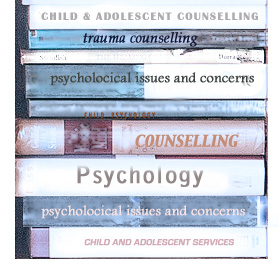Children are amazing people. They are growing and developing at an incredible pace, taking in information, filtering, integrating and learning. Early in life, children’s neural networks are growing rapidly, and connections are being made at a phenomenal rate.
In the first three years children’s brain size increases from approximately 350-400 grams to about 1100 grams. Brain development is influenced by genetics, and environment. The child’s primary caregivers and immediate family are the most influential environmental factors with the child’s home and the wider environment, as well as health and illness and diet all playing a part.
During a child’s life they may experience difficulties in their environment, causing stress that can be upsetting for children and their parents. Most of the time, the family is able to work together to resolve these challenges, and child development continues on in a healthy way.
However sometimes parents can sense that “things aren’t right”, or even going wrong for their child. Parents typically know their child better than anyone, and their instinct, or “gut feel” can lead to the question, “Is my child okay?”
When we are concerned for our children, we may experience a range of feelings including anxiety, confusion, guilt, frustration and anger. At these times, parents may ask for counselling for themselves or their child, in the hope that their child can be helped. (Novick and Novick, 2002)
Parents or caregivers may bring their child to counselling when:
- a child has suffered a traumatic event or series of events. These may be of a sexual, physical or emotional nature;
- there has been an experience of serious illness within the family or a person close to the family;
- a child experiences grief and loss after the ending of a significant familial relationship or death of a significant person;
- there is upheaval after the end of a marital relationship, or during adjustment to new living arrangements;
- a child experiences school stress, including feeling pressure to do well;
- a child experiences bullying and peer pressure;
- when there is concern that developmental milestones are not being met;
- when a child has sudden unexplained changes in mood and/or behaviour that may include rapid changes in emotion, and may include expressions of self harming or suicidal ideation or intent;
- when a child complains of pains and illness that are not otherwise explained by a medical practitioner.
Counselling with a psychologist has the potential to help a child express their thoughts and feelings about what is important to them, and help identify what they see as stressful or problematic. By creating a safe and secure environment where a child’s voice is heard, their experience is validated, and meaningful solutions can be sought.
Children learn best through play. There is a strong evidence base to support the validity of age appropriate, child-centred play therapy with children. Techniques like imaginary play, role play, art and craft, construction and reading amongst others, are both fun and real work for a child.
Parents and caregivers are usually the best people to support long lasting change in families, and their contribution to counselling and support of the work is important.
Work with a child will necessarily require meeting with one or more family members so that the psychologist can get a more thorough understanding of the family and the concerns, to assess suitability for counselling, and to develop some agreed goals if counselling proceeds.
If you would like to make an appointment please contact Anna by telephone or email.
